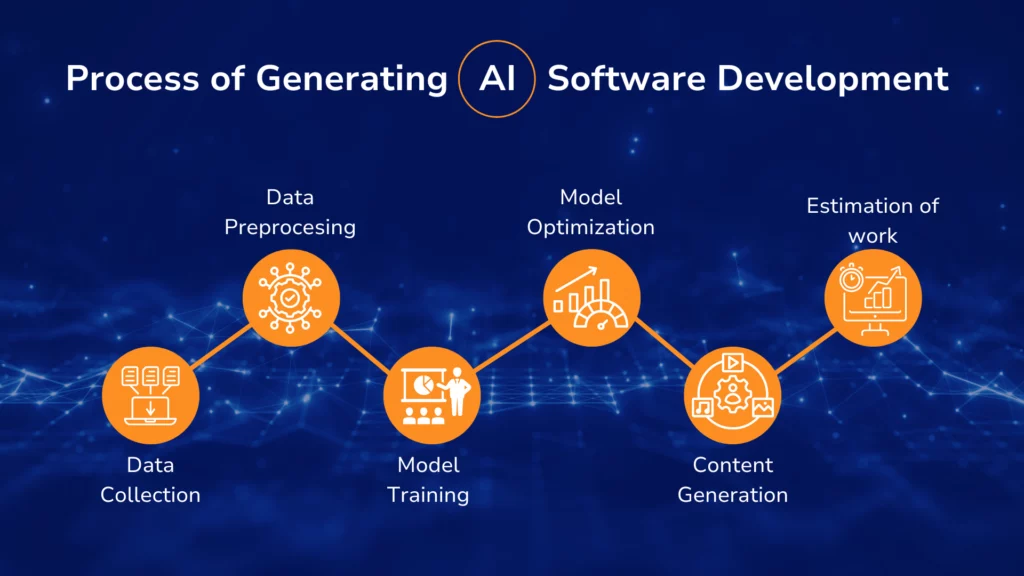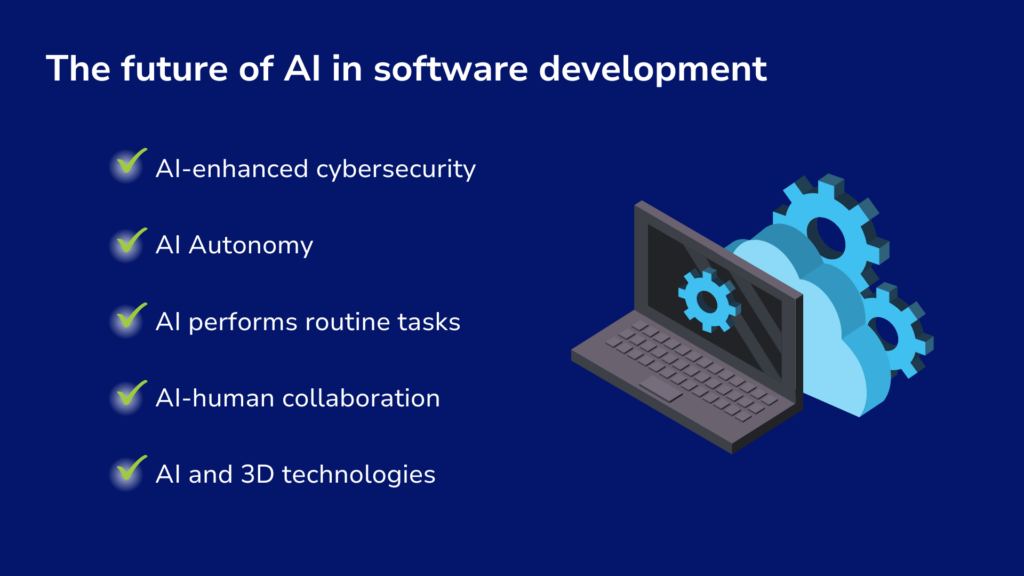Top AI Trends in Software Development


The software world has been updated with progressive technologies including artificial intelligence developments which aims to assist businesses in several key areas. Now, it’s difficult to imagine a client who does not utilize AI tools in one way or another. AI not only saves time and reduces costs, but it also improves quality.
The industry has experienced major changes, shifts, and developments thanks to the machine learning trends and a number of other emerging advancements. AI is changing the whole journey of software development, even the automation of intricate tasks, creating intelligent UIs, and enhancing user experience across the board.The development of low-code platforms and other assisted technologies into the everyday workflows only prove that the AI flow of tools is and will be pushing the industry forward.
With the help of breakthroughs in machine learning, artificial intelligence has completely automated many time-consuming tasks, improved decision-making, and enhanced the overall productivity and efficiency of software development. The use of AI-driven testing solutions is no longer considered a luxury, but rather a reinforced tool, especially for organizations that wish to innovate.
With the constant artificial intelligence developments, programmers are more able to address challenges than ever before, due to these algorithms’ ability to process large volumes of information, find certain patterns, and make forecasts. For example, AI systems are now used for improving resource management, anticipating user operations, and building self-learning systems.
The introduction of low-code and no-code platforms is perhaps the greatest advancement in the history of software development. Such platforms provide the ability to create and deploy applications easily and quickly.
What is the new AI technology that significantly enhances these platforms’ capabilities? Low-code/no-code tools have AI algorithms working in the background which learn user instructions, suggest useful options, and even code parts of the program. For example, with smart features like NLP, users can make requests and the program will write the code that can help to solve the issue.
The merits of low-code/no-code platforms are numerous. They help in the decreased development lifecycle, costs, and increase the reach of the software development. Organizations are now able to develop applications and meet the ever-changing consumer tastes in the shortest time possible. But there are several limitations that still exist such as scalability, integration with other older systems, and security issues.
One of the advanced innovations in artificial intelligence for developers is — AI code generator. Developers use it as a tool to implement coding tasks effectively.
Popular AI Tools in Code Generation

AI tools have a profound influence on efficiency. By taking over tedious work, they enable developers to engage in more productive activities, such as architectural design. Additionally, technology can help to promote consistency and improve code quality by providing suggestions that embody industry practices, resulting in less errors. These advancements align closely with artificial intelligence trends in business, as companies seek to maximize efficiency and innovation.
The next years are set to see breakthroughs in AI and software development. AI trends indicate the following:

The software development industry is rapidly evolving under the influence of AI trends, which are reshaping traditional workflows and introducing groundbreaking possibilities. Key trends include:
By understanding and embracing these current trends in artificial intelligence, developers, and companies can stay ahead in an increasingly competitive landscape.
As we adopt the latest technology in artificial intelligence, ethical challenges such as algorithmic bias, data privacy concerns, and the displacement of human roles come into play. Organizations must implement policies to ensure fairness, transparency, and inclusivity in AI-driven solutions.
The role of AI in software development is not just transformative—it’s foundational for the future. Artificial intelligence developments are contributing to instant error detection, scaling up, and the implementation of features that make technology advantageous for the development process.
To adapt to this rapidly evolving landscape, developers must prioritize continuous learning and skill development. Being familiar with and understanding the latest developments in machine learning is crucial for staying relevant in the modern IT market.
As we embrace advancements in artificial intelligence and utilize cutting-edge technology, the prospects are endless, paving the way for a more promising and effective future for software development.